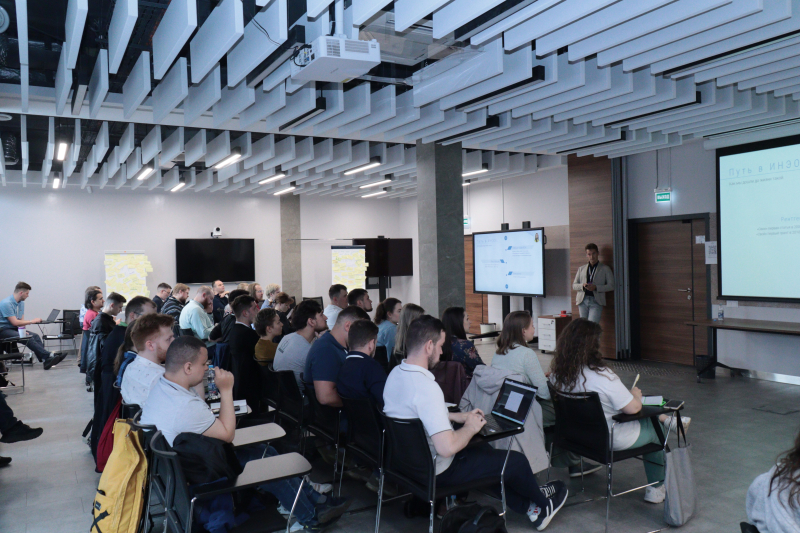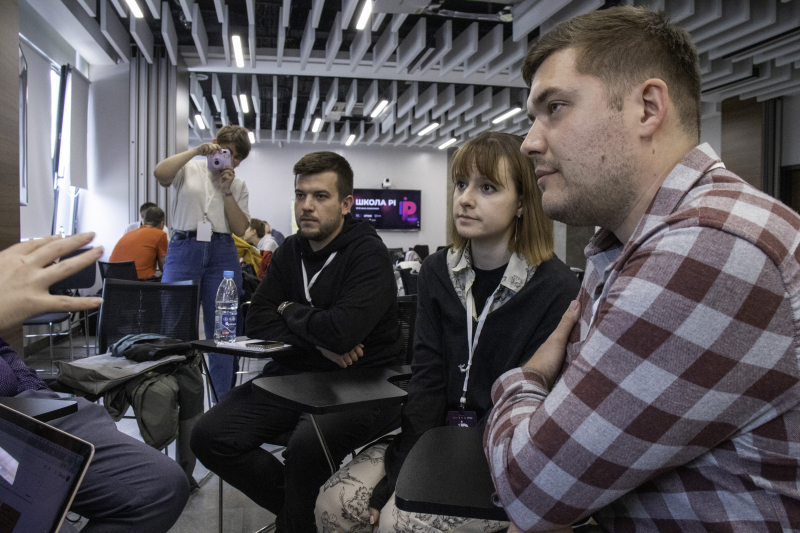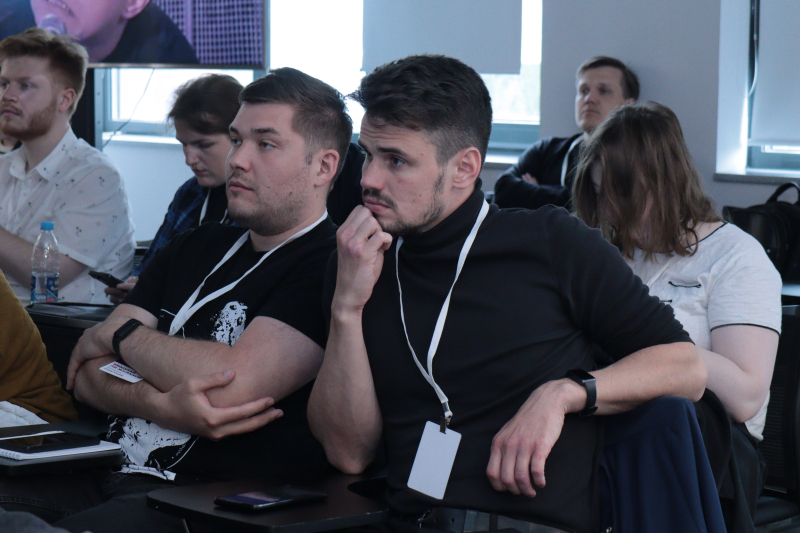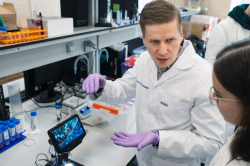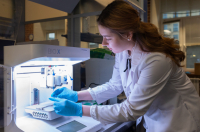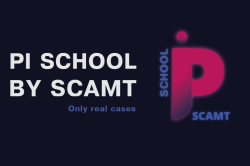Designed for future lab leaders, the PI School was held for the third time, traditionally in partnership with the Russian-based oil and gas company Tatneft. Aspiring principal investigators (PIs) and experts came together at the company’s corporate university in Almetyevsk (Tatarstan) to share their visions on how to start a career in science and find collaborations in academia and industry.
As noted by Vladimir Vinogradov, the school’s initiator and the head of the SCAMT Institute, PIs are specialists with a specific skill set, not conventional lab leaders, and the PI School is exactly the platform where such experts, both current and future ones, can acquire new competencies, share their ideas, and receive feedback from their colleagues and other professionals.
“Next-gen lab leaders need to possess a lot of skills. They should be able to work at the frontier of science, manage teams, attract grants and investors, build relations with partners, and, above all, generate new knowledge. The purpose of our school is to showcase how all that can be done in Russia. In no way do we aim to say that our experience is ideal but we intend to share what we’ve learned so far with those just getting started.” says Vladimir Vinogradov.
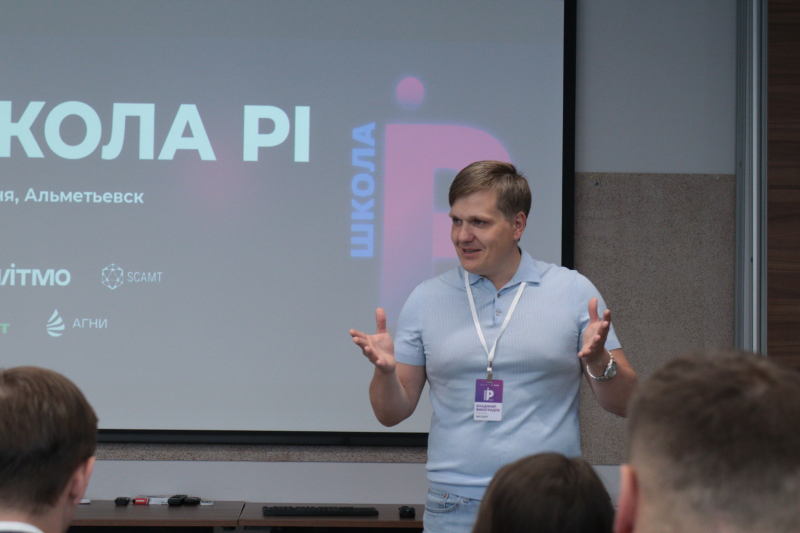
Vladimir Vinogradov. Credit: Media Center Shtativ. Photo by ITMO’s Advanced Engineering School
Within a week of on-campus meetings, the school’s participants explored the key principles behind organizing a successful research team in Russia and establishing laboratories, from goal-setting and choosing a field of study to building a business plan and obtaining funding.
Among the school’s experts were Oleg Gusev, the head of the research center Regulatory Genomics at Kazan Federal University and a professor at Juntendo University; Pavel Belov, a professor of the Russian Academy of Sciences and the head of ITMO’s School of Physics and Engineering; Maxim Timofeyev, the head of the Institute of Biology at Irkutsk State University; Maria Galyamova, the head of HealthNet and an expert at the Foundation for Assistance to Small Innovative Enterprises, etc.
“Both participants and experts see great value in the community created by the school. Developers oftentimes have to deal with misunderstanding when it comes to their ideas, whereas here, at the PI School, they’re surrounded by like-minded people who can help their product become even better,” notes Valeria Rodionova, an expert at the school and the Priority 2030 national project, as well as the head of higher school of interdisciplinary research and engineering at the Institute of High Technology, Immanuel Kant Baltic Federal University.
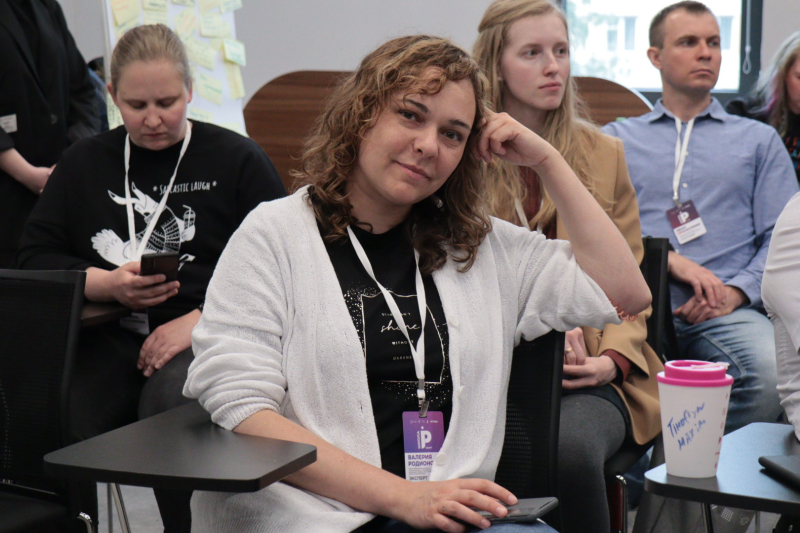
Valeria Rodionova. Credit: Media Center Shtativ. Photo by ITMO’s Advanced Engineering School
The school welcomed a total of 45 participants and 16 experts from 20 Russian cities, including Moscow, St. Petersburg, Irkutsk, Novosibirsk, Yekaterinburg, Saratov, Kaliningrad, and many others. Konstantin Klementiev, the deputy dean at Shenzhen MSU-BIT University, shared that he attended the event to gain a fresh perspective on his work, namely alleviate administrative burdens and rediscover science for himself.
“I thought that the school, with its strong team of experts, will help me shape a vision of how to achieve my goal. Already now, I feel that the event was massively insightful for me, and I plan to reflect on all I’ve learned as the school ends. Besides, before I even came here, I had a long-time desire to travel to Tatarstan, so it ticked all the boxes,” says Konstantin Klementiev.
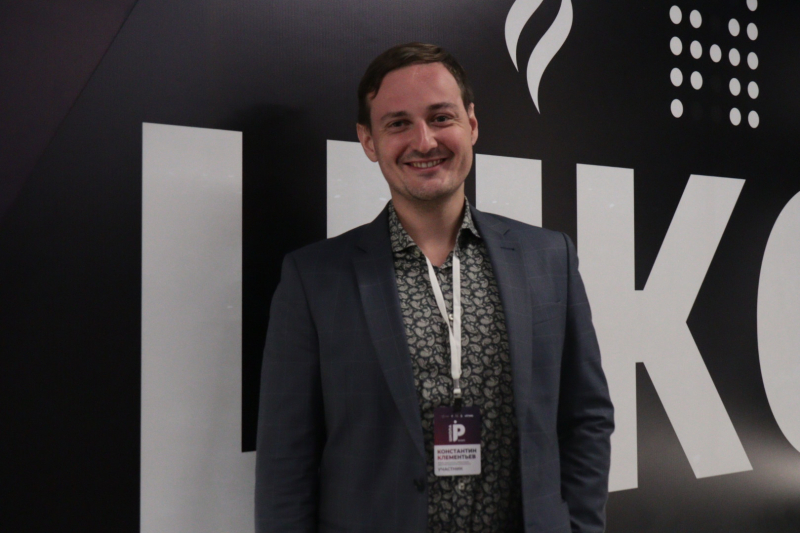
Konstantin Klementiev. Credit: Media Center Shtativ. Photo by ITMO’s Advanced Engineering School
By the end of the school, the participants built their individual career paths and defended their roadmaps that will help them establish their laboratories. The roadmaps were tailored specifically to each researcher’s background and goals. The school’s experts guided the participants through their work on the roadmaps, including as part of group and one-on-one meetings. The defense took place on June 24.
Based on the results of their defense, the participants have the chance to continue collaborations with Tatneft, the Advanced Engineering School, and the SCAMT Institute.
“As a manufacturer, I’m incredibly happy that there are such events like the School PI, because the industry is in a desperate need for specialists who are ambitious and bold and are ready to experiment and take risks to achieve something great. At the same time, we do have young people who have a healthy dose of adventure and willingness to learn in them, and our task here is to provide the conditions so that they could advance science further,” stresses Nail Maganov, the chair of the board of directors at Tatneft.
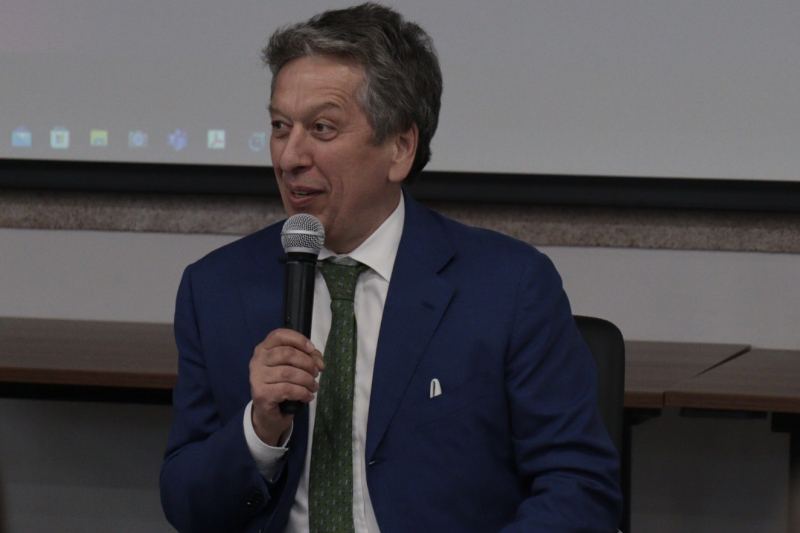
Nail Maganov. Credit: Media Center Shtativ. Photo by ITMO’s Advanced Engineering School
This year, ITMO’s Advanced Engineering School was named best in Russia. The school implements a number of major collaborative projects, including a gyrochair for people with disabilities and sensors for online monitoring of blood glucose levels in collaboration with Tatneft, a fiber-optic system jointly with the Perspective Technologies Agency, spectrometers in collaboration with Gazprom Neft, and high-quality fiber-optic filters for quantum key distribution systems with Russian Railways.
ITMO.NEWS editorial team based on information from ITMO’s Advanced Engineering School
